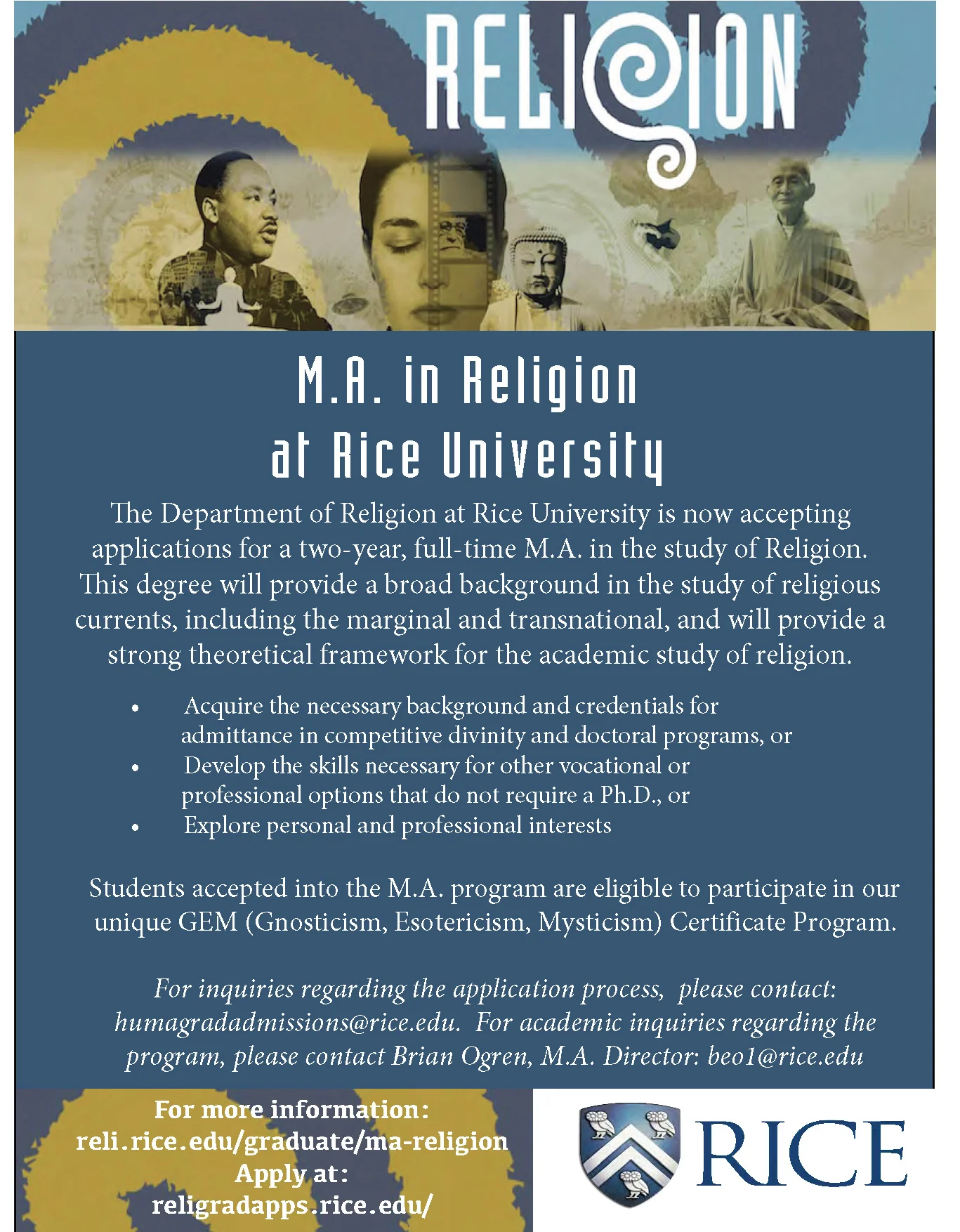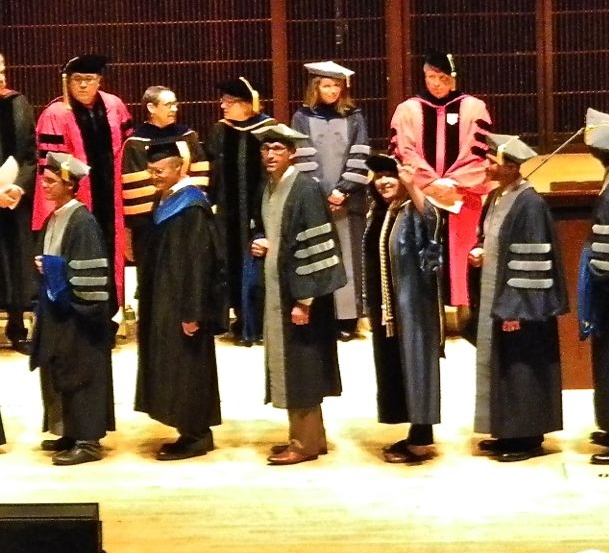Preparing for Graduate Studies
I receive many inquiries regarding what preparations are needed for students who are considering applying for the PhD program in Bible and Beyond at Rice. Matthias Henze (Syriac specialist) and myself are the advisors in this program. If you want to work on Syriac materials and early Jewish pseudepigrapha, Professor Henze is the person to contact (mhenze@rice.edu). If you want to work with me in Coptic materials, this is how you should prepare yourself for the application.
1. Get a MA in a strong academic program in biblical studies, classics, near eastern studies, or early christian studies. Why? Because our PhD program is only a 5-year program. When you come to work in this program, this will be the point you
specialize in the Coptic materials. There is not enough time for you to lay down all the foundational work that is necessary for you to have in biblical period, literature and languages, and then to also add the Coptic materials to your repertoire. The Coptic materials are not a substitute for the biblical corpus. They are simply more pieces to the puzzle of the early Christian period. They are important pieces indeed, and necessary for any historical understanding of the biblical period and the formative years of Christianity. But the biblical materials must be mastered first.
2. Second-year competency in Greek (preferably classical) and Hebrew (biblical).
3. Reading knowledge of French and German can be obtained in the first two years of our program, but it will behoove applicants to have at least one of these secondary research languages mastered before arriving on campus.
4. A plan to work on Coptic materials or Greek extra-canonical materials as a dissertation project, with the intent to try to understand what these materials tell us about Christian origins and early Christianity.
5. A commitment to the critical and academic study of religion.
6. Contact me, preferrably a year to six months before your application is submitted, so that we can begin discussing your interests and goals, and whether or not working at Rice is your best option.
The Bible and Beyond
One area of concentration in the Ph.D. program at Rice is the program in Biblical Studies. The major components of this program include the traditional study of the Hebrew Bible and the New Testament within the historical context of Ancient Judaism and Early Christianity, while also acknowledging the rich and diverse literature beyond both canons. These include the Old Testament and New Testament Apocrypha, the Pseudepigrapha, the Dead Sea Scrolls, Nag Hammadi and Gnostic literature, and patristic literature from the Ante-Nicene period.
In recent years, biblical scholars increasingly have come to realize the importance of this literature “beyond the Bible,” not only because it helps shed light on the canonical writings, but also because this material is valuable in its own right. Importantly this literature reveals to us that the richness of Judaism and Christianity was far greater than that expressed in the canonical literature.
While the study of Jewish and Christian history and literature are disciplines in and of themselves, they are seen and studied together at Rice. A student may elect to emphasize either tradition, but the study of both is required.
The goal of the program is to train students to work independently on texts of their choice, to eventually become professors and scholars in the history, literature and interpretation of the Testaments and related literature. To do so, students will (1) become familiar with the history of the discipline, (2) learn the historical-critical method of interpretation supplemented by other methods used in the field, (3) gain linguistic proficiency in the relevant ancient languages, (4) study primary texts, and (5) become conversant in the history and material culture of antiquity.
Gnosticism, Esotericism, Mysticism
Traditional understandings of religion often focus on events, figures, and ideas that are more or less amenable to orthodox framings of what constitutes religious truth and practice. But what if we do not privilege these public “winning” voices, but look also at those heterodox or esoteric currents of the history of religions that have been actively repressed, censored, or simply forgotten by their respective cultures? What if, moreover, we privilege the psychology and phenomenology of religious experience over the authorial framing of these events by the faith traditions, even as we explore and analyze the profound ways the faith traditions shape these same “individual” experiences?
The comparative categories of mysticism, gnosticism, and esotericism are all modern constructs, each different in nuance but all designed to ask just these sorts of dialectical questions, to relate orthodoxy to heterodoxy, and vice-versa.
This area of concentration in the Ph.D. program at Rice provides students the opportunity to study the varieties and commonalities of mysticism, gnosticism, and esotericism as these phenomena are both shaped within and marshaled outside (or even against) discrete religious traditions. The Department’s approach to the study of mysticism, gnosticism, and esotericism is grounded in the rigorous study of single traditions, to the extent that it demands distinct philological and historical training in particular cultural areas. It is also explicitly comparative, to the extent that it draws on multiple traditions—from Judaism, Christianity, and Islam, to Hinduism, Buddhism, and the New Age—for its comprehensive materials and theorizing.
The goal of the program is to train students to work independently on traditions of their choice and, eventually, to become professors and scholars in the study of religion. To do so, students will (1) become familiar with the histories and nuances of the comparative categories of mysticism, gnosticism, and esotericism in the discipline; (2) gain linguistic proficiency in relevant languages; (3) study primary materials, including texts and practices; and (4) become conversant in the history and material culture of their chosen traditions. The result is a unique community of scholars and graduate colleagues actively engaged in the historical-critical, psychological, philosophical, aesthetic, ritual, somatic, contemplative, and phenomenological exploration of some of the most intense, unusual, and interesting religious phenomena known to scholars of religion.




















































































